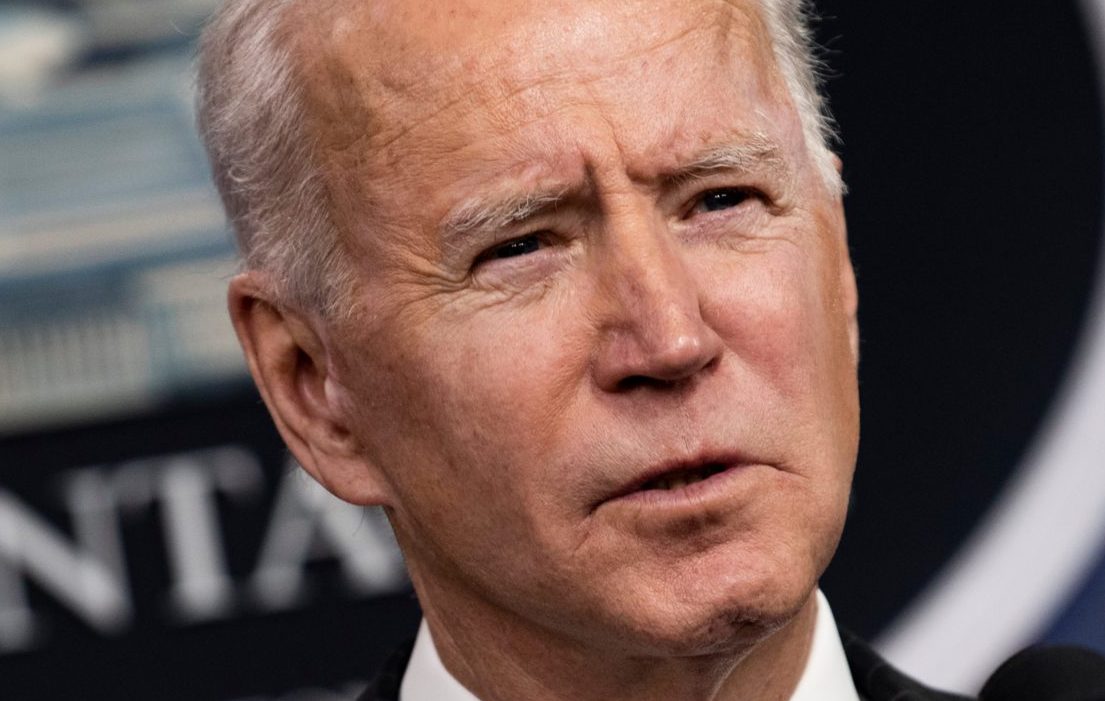Don’t Believe Biden’s Assurances About Not Going To War Over Ukraine

On Tuesday, President Joe Biden and Russian President Vladimir Putin met via an online video conference that spanned two hours, primarily in an attempt to defuse the heightening tensions in Ukraine.
Biden attempted to deter Putin’s Russia from considering an invasion in the near future by threatening increased economic sanctions and “other measures” if the situation becomes more dire, according to a White House readout of the call. The White House readout was unsurprisingly light on details, although it reiterated Biden’s “support for Ukraine’s sovereignty and territorial integrity and called for de-escalation and a return to diplomacy.” The Kremlin’s summary of the call claimed Biden told Putin the Russian president was approaching a “red line” regarding Ukraine.
After the call, other members of the Biden administration provided more details on what could be to come if Russia continues its buildup along the Ukrainian border. Biden’s National Security Adviser Jake Sullivan told members of the media at a press conference after the call that “things we did not do in 2014, we are prepared to do now,” in reference to the Obama administration’s response to the Russian annexation of Crimea in 2014.
Biden was V.P. then, but he’s president now.
The U.S. still considers the Crimean Peninsula illegally occupied territory. Back in 2014, the Obama administration responded to the initial annexation by imposing sanctions, banning or revoking visas for Russian officials, canceling trade and military diplomatic discussions, as well as providing loan guarantees and humanitarian aid.
During the administration that followed, Donald Trump, whose Russia policy was hamstrung domestically by the infamous Russia hoax, frequently boasted that he gave Ukraine “anti-tank busters,” whereas Obama was sending them “pillows and sheets.” Since 2014, the U.S. has given the Ukrainians more than $2.5 billion in security assistance.
What, then, is America prepared to do for Ukraine that it didn’t in 2014 and the years since? Biden’s team hasn’t quite specified, often making overtures to democracy and the territorial integrity of Ukraine, but the administration’s focus is reportedly ramping up economic penalties directed at a number of Russian oligarchs, as well as cutting off some Russian companies from global capital markets in coordination with the United States’ European allies.
At the extreme end of the spectrum of punishing Russia economically for its buildup on Ukraine’s border is cutting Russia off from SWIFT, the Society for Worldwide Interbank Financial Telecommunication that serves as a mediator between banks for international transactions. The U.S. and its allies could also pressure Russia by attempting to slow, if not stop, the Nord Stream 2 natural gas pipeline to Germany.
However, none of these measures are particularly new, and somewhat in line with how the United States has responded to Russian action in Ukraine since 2014. Again I ask, what is the U.S. prepared to do that it hasn’t done before? Ned Price, spokesperson for the State Department, said Monday, “if Russia chooses to move forward with any plans it may have developed to continue its military aggression or to aggress militarily upon Ukraine, to violate Ukraine’s sovereignty, its independence, its territorial integrity, we and our allies would be prepared to act.” Price later added that the Biden administration is committed to NATO’s open-door policy, which is inherently militaristic in nature.
While reports indicate that the administration is not debating direct military involvement in Ukraine at the moment, they’re doing an awfully bad job of reassuring the public they won’t stumble into yet another foreign policy debacle.
Biden attempted to provide such reassurances Wednesday while answering questions from the media outside the White House. The president said, “The idea the United States is going to unilaterally use force to confront Russia invading Ukraine is not in the cards right now.” However, by qualifying that statement with the term “unilateral,” Biden made his statement nonfunctional, given any action in Ukraine will be at the invitation of the Ukrainians, not to mention the U.S. capabilities in the region are heavily intertwined with NATO. Biden admitted this himself, saying that the U.S. would be “required to reinforce our presence in NATO countries,” and that “it would depend upon what the rest of the NATO countries were willing to do as well.”
This doesn’t inspire much hope. The U.S. has pulled its allies into conflicts before, albeit begrudgingly in some cases. Who says it won’t happen again, despite our humiliation meddling in the affairs of Middle Eastern countries over similar concerns (ostensibly) for freedom and democracy.
It seems the foreign policy blob is set on continuing to walk the tightrope of red lines despite a bad case of vertigo.
Comments